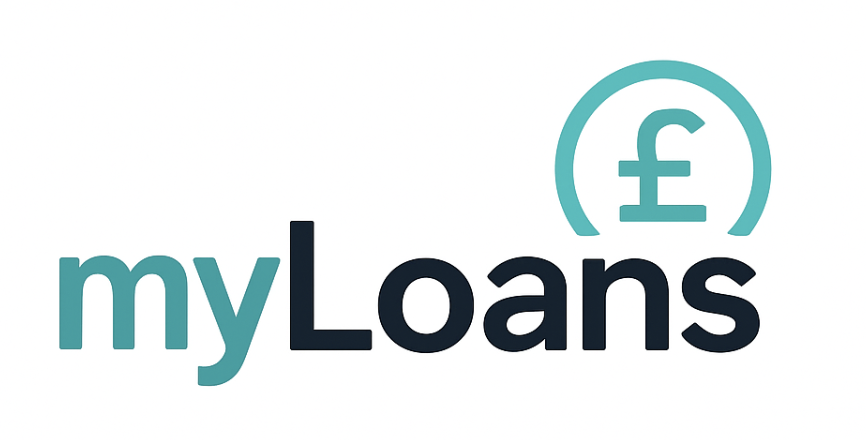Table of Contents
Introduction
Having a low credit score can make it difficult to get traditional forms of borrowing such as personal loans, credit cards, or overdrafts. As a result, many people turn to short term loans bad credit UK as a way to access money quickly. These loans are usually applied for online and often come with fast approval times, making them attractive to borrowers who need cash in an emergency.
However, these products are classed as high-cost credit and can become very expensive if repayments are missed. Therefore, they should only ever be used with caution. Before applying, it’s important to understand how short term loans for bad credit UK work, what rules the Financial Conduct Authority (FCA) puts in place to protect borrowers, and which safer alternatives might be worth exploring first. For an impartial overview, see MoneyHelper – Short-term credit.
What Are Short Term Loans for Bad Credit UK?
A short term loan for bad credit UK is a type of high-cost borrowing aimed at people who may have missed repayments, have defaults on their file, or carry a low credit score. Unlike payday loans, borrowers repay these loans in instalments instead of one lump sum.
How Much Can You Borrow with a Bad Credit Loan?
Most short term bad credit loans range from £200 to £3,000, although the exact amount depends on the lender and your circumstances. In many cases, lenders limit the loan size if your credit history shows repeated missed repayments or defaults.
How Long Are the Repayment Terms?
Repayment terms are usually set between three and twelve months, though some lenders extend them up to twenty-four months. Because of this, short term loans spread the cost over time and are generally easier to manage than payday loans.
How Quickly Are Short Term Loans for Bad Credit UK Approved?
One of the biggest appeals of these loans is speed. Most borrowers complete applications online, and if approved, lenders often transfer the money within 24 hours. However, fast approval does not mean guaranteed acceptance, since FCA rules require lenders to run full affordability checks.
Who Can Apply for Short Term Loans with Bad Credit?
These loans are designed for people with poor or limited credit history. Lenders focus on your ability to repay rather than just your credit score. As a result, even with a low score, you may still qualify if you can prove the loan is affordable.
👉 Key takeaway: Short term loans for bad credit UK are quick and accessible, but the focus on speed and availability often means higher costs and more risks if repayments are missed. For impartial guidance, see MoneyHelper – Short-term credit.
How Lenders Assess Bad Credit Applications
When you apply for a short term loan for bad credit UK, lenders don’t rely only on your credit score. Instead, they look at several factors to decide whether you can afford repayments.
Credit History
Lenders first check your credit history. Missed payments, defaults, or County Court Judgments (CCJs) can make borrowing harder. However, these issues don’t always mean rejection. Some lenders specialise in working with people who have poor credit, provided the loan is still affordable.
Affordability Checks
Next, lenders run affordability checks. They compare your income with your essential expenses to judge whether repayments fit your budget. As a result, someone with steady income but high outgoings may be refused, while another borrower with fewer commitments could be accepted.
Bank Statements
Lenders also examine recent bank statements to see how you manage money. They use this to confirm income, spending patterns, and overdraft use. For example, if your account shows frequent late fees, a lender may view this as a risk.
Employment and Income Stability
Finally, lenders look at your employment status. A regular income shows you can handle repayments. In contrast, irregular work or fluctuating earnings may reduce your chances of approval.
👉 Key takeaway: Even if you have poor credit, lenders may still approve your application if you can prove affordability.
📖 Learn more in the FCA’s rules on affordability.
Payday Loans vs Short Term Loans for Bad Credit
Borrowers with poor credit often face a choice between payday loans and short term loans for bad credit UK. Both products provide fast access to money, but they work very differently and carry different levels of risk.
Repayment Terms
Payday loans must be repaid in a single lump sum, usually on your next payday. This can create serious problems for borrowers who already struggle with cash flow. In contrast, short term loans spread repayments over several months, making them more manageable.
Loan Amounts
Payday loans are usually smaller, with amounts between £100 and £1,000. Short term bad credit loans typically range from £200 to £3,000. As a result, borrowers looking for larger sums are more likely to choose a short term instalment loan.
Affordability and Checks
Historically, payday loans were criticised for weak affordability checks. Today, all lenders must follow FCA rules, but short term lenders tend to run stricter income and expense checks. This means borrowers may have a slightly safer experience when applying for short term instalment loans.
Risk of Debt
The main danger with payday loans is the high risk of a debt spiral. Missing a lump-sum repayment can force borrowers to take out more credit to cover the shortfall. By comparison, short term loans reduce this risk because the repayments are spread out. However, they are still expensive and can cause financial difficulty if payments are missed.
👉 Key takeaway: Payday loans are far less common in the UK today due to FCA regulation. Borrowers with poor credit are more likely to be offered a short term instalment loan, but both options remain high-cost and should be approached with caution.
FCA Regulations and Borrower Protections
FCA Caps on Costs
Since 2015, the Financial Conduct Authority (FCA) has enforced strict rules on high-cost short-term credit (HCSTC). These rules set clear limits on what lenders can charge. The FCA caps interest at 0.8% per day, restricts default fees to £15, and prevents lenders from charging more than 100% of the original loan amount.
Why This Matters for Bad Credit Borrowers
These protections are especially important for people with poor credit. In the past, borrowers faced endless charges and mounting interest. Now, lenders cannot add unlimited fees. As a result, the risk of falling into a cycle of spiralling debt is much lower than it was before FCA reform.
📖 Learn more from the FCA’s consumer guidance.
Pros and Cons of Short Term Loans for Bad Credit
Short term loans can be an option for people with poor credit, but like any high-cost product, they have both advantages and disadvantages. Understanding these points will help you decide whether they are right for your situation.
Pros of Short Term Loans
One benefit is that these loans are easier to access than traditional credit. Even with a low credit score, you may still qualify if you can show the repayments are affordable.
They also offer fast approval, and many lenders transfer funds within 24 hours once an application is accepted. In addition, repayments are spread over monthly instalments rather than a single lump sum, which makes them easier to manage than payday loans.
Finally, borrowers are protected by FCA rules. Caps on interest and fees mean you cannot be charged more than 100% of what you borrow.
Cons of Short Term Loans
Despite these benefits, there are important drawbacks. Short term loans often come with very high APRs, which makes them more expensive than personal loans or credit cards.
Missing payments can also damage your credit record further, making it harder to borrow in the future. As a result, some people end up in a cycle of borrowing to cover previous loans.
Another issue is the number of unreliable lenders in the market. While FCA regulation provides some protection, borrowers must still be careful to choose a reputable lender.
Pros and Cons of Short Term Loans for Bad Credit
✅ Pros
-
Accessible even with low credit scores
-
Fast approval and same-day funding possible
-
Repayments spread over instalments
-
FCA regulations limit fees and interest
❌ Cons
-
Very high APR compared to mainstream loans
-
Missed payments damage your credit further
-
Risk of falling into a cycle of borrowing
-
Limited reputable lenders available
Common Risks and Misleading Claims
Borrowers with poor credit are often targeted by misleading advertising. These offers can appear attractive, but they usually hide serious risks.
One common example is the claim of “guaranteed approval” loans. No FCA-authorised lender can promise guaranteed acceptance, because affordability and credit checks are required by law.
You may also see “instant decision” or “instant approval” loans advertised. While some lenders do provide fast responses, they must still carry out proper affordability checks before making a final decision.
Another red flag is the promotion of “no credit check loans”. These are almost always scams or offered by illegal lenders. Genuine, regulated lenders are required to run checks to protect both the borrower and themselves.
📖 For more advice on spotting scams, see Citizens Advice – Loan scams.
Safer Alternatives to Short Term Loans for Bad Credit
Instead of turning to high-cost borrowing, consider:
-
Credit unions – Lower interest and more flexible repayment options
-
Budgeting Loans (DWP) – Interest-free for certain benefit claimants (apply here)
-
Debt advice charities – StepChange, Citizens Advice, MoneyHelper
-
Friends or family support – If agreements are clear and responsible.
Tips to Improve Your Chances of Approval
If you decide to apply for a short term loan with bad credit, there are steps you can take to improve your chances of being approved.
The first step is to check your credit report for errors. Mistakes are not uncommon and correcting them with agencies like Experian, Equifax, or TransUnion can immediately make your profile look stronger to lenders.
It also helps to reduce any existing debt before applying. Even paying off a small balance can show lenders that you are managing your money responsibly. In addition, lowering your outgoings can improve the results of the affordability checks that lenders must carry out.
Another important factor is proving you have stable income. Whether your earnings come from employment or benefits, showing a reliable income stream reassures lenders that you can keep up with repayments.
Finally, always make sure you apply through FCA-authorised lenders or brokers. As a result, you’ll be protected by regulation and avoid the risk of falling into the hands of illegal or scam lenders.
Frequently Asked Questions (FAQs)
1. Can I get short term loans for bad credit UK with no credit check?
No. The FCA requires all lenders to run credit and affordability checks. As a result, no genuine lender can offer a loan with “no credit checks.” Be cautious of claims that suggest otherwise, as they often come from scam or illegal lenders.
2. Do these loans improve my credit score?
They can help if you repay on time. Some lenders report repayments to credit agencies, which may boost your score. However, missed or late payments will hurt your credit and make borrowing harder in the future.
3. What’s the maximum I can borrow?
Most lenders offering short term loans for bad credit UK provide between £200 and £3,000. The exact amount depends on the lender and your personal affordability.
4. Are these loans regulated?
Yes. The FCA regulates all short term loans in the UK. Lenders must follow affordability rules and cost caps, which limit fees and interest. 📖 Learn more in the FCA’s consumer guidance.
5. What’s the safest alternative?
Safer options include credit unions and government-backed Budgeting Loans, which charge little or no interest. Free help is also available from StepChange and MoneyHelper, who provide impartial advice on borrowing and debt.
Conclusion
Short term loans for bad credit UK can provide fast access to money, but they remain high-cost and risky. While they may help in emergencies, the debt burden can increase quickly if repayments are missed.
Therefore, it’s always better to explore safer alternatives first, such as credit unions, government support, or free debt advice. If you do decide to apply, make sure the lender or broker is FCA-authorised and that you fully understand the repayments before signing.
How to Get Approved for Short Term Loans in the UK
Getting approved for a loan isn’t always straightforward, especially when it comes to short term borrowing. Many lenders require affordability checks, credit history reviews, and proof of income before making a decision. If you’re applying for a short term loan in the...
Payday Loans vs Short Term Loans UK: What’s the Difference?
When you’re faced with urgent expenses, it’s easy to feel overwhelmed by the different borrowing options available. In the UK, many people search for payday loans vs short term loans UK, but these two products are not the same. They differ in repayment terms, costs,...
Alternatives to Short Term Loans in the UK | Safer Borrowing Options
Looking for alternatives to short term loans UK? While payday loans and other high-cost credit can provide fast cash, they are often expensive and risky if repayments are missed. The good news is that UK borrowers have safer and more affordable options. From credit...
Navigating Short-Term Loans in the UK: Types, Eligibility & Smart Uses
Types, Eligibility & Smart Uses Looking for clear, trustworthy information on short term loans in the UK? You’re not alone. This comprehensive guide explains the types of short term loans, eligibility criteria, FCA regulations, and the smartest ways to use (or...
Comparing Short Term Loans: Key Factors
Comparing Short Term Loans: Key FactorsIntroduction Short term loans are a common borrowing option in the UK, designed to provide fast access to cash for people dealing with unexpected bills, emergencies, or short gaps in income. With many lenders competing for...
Short Term Loans: What You Need to Know
Short Term Loans in the UK: A Complete GuideWhen you need money quickly, short term loans can seem like a solution. They are designed for borrowing small amounts over weeks or months, often from a direct lender. But with high costs and strict rules, it’s important to...
Tips for Securing Short Term Loans Easily
Tips for Securing Short Term Loans EasilyShort-term loans are financial tools designed to help individuals access quick cash for urgent needs. Unlike long-term loans, they have shorter repayment periods, usually ranging from a few...









